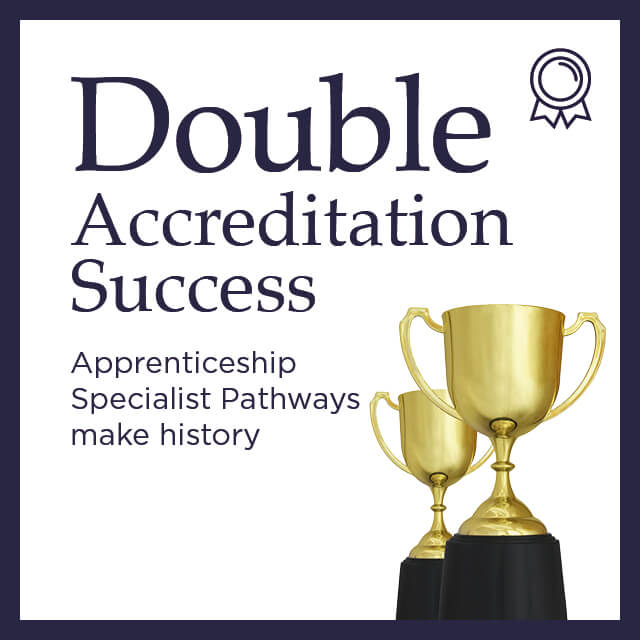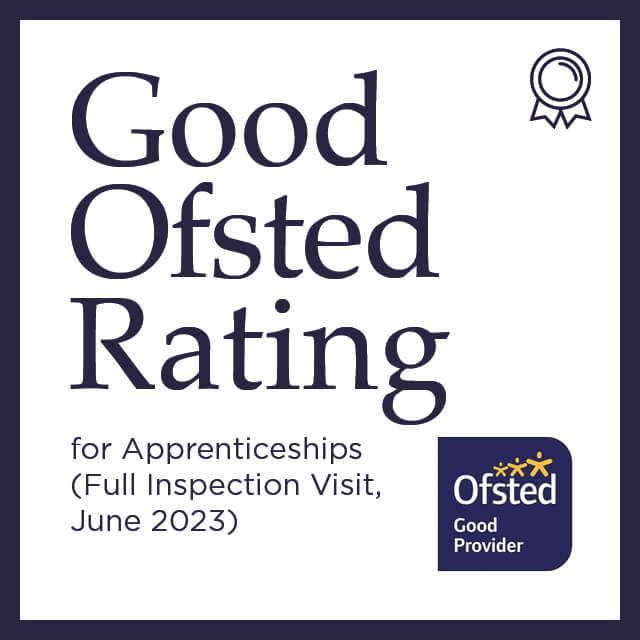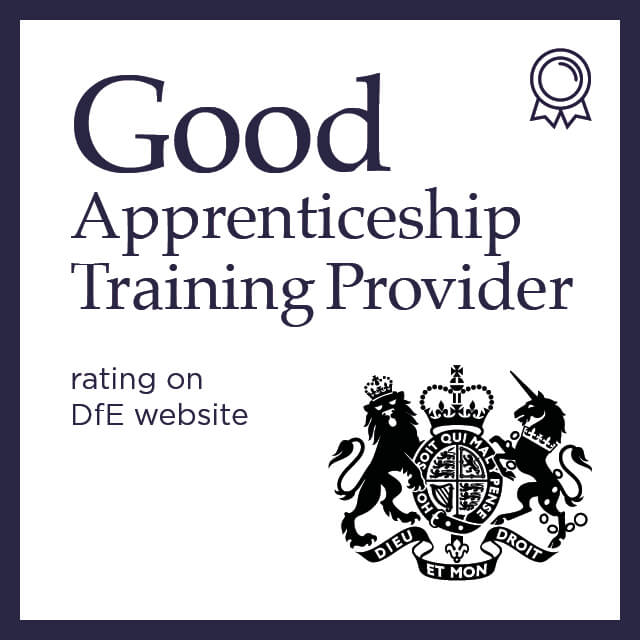Research Scientist Apprenticeship
The Research Scientist Apprenticeship at Keele University offers three specialisms in Analytical Science or Biomedical Science and our new specialism, Specialist Data Processing. The three pathways only differ in the Research and Development module for the specialism chosen. This ensures the programme provides scientific technical knowledge and skills, alongside developing leadership qualities to equip professionals for the challenges of the modern science sector.
Duration: 2 years.
Qualification: MSc Technical Leadership.
Application: We typically require applications 8 weeks before programme starts.
Ofsted: 'Good' Ofsted rating for Apprenticeships at Keele University in Full Inspection, June 2023.
Upcoming Event
Research Scientist Apprenticeship Webinar
Monday 28th April 13:00-14:00
You are warmly invited to our Research Scientist Apprenticeship Webinar. The Microsoft Teams session is designed to answer any questions you may have about our apprenticeship, in an informal online setting.
Our Programme Lead will provide a detailed overview of the apprenticeship and staff from our Apprenticeships Team will also be available to discuss key deadlines for 2025 entry and how Keele University supports employers and apprentices.

"“The jump from scientist to leader can be intimidating, but the apprenticeship gave me a safe environment to develop both analytical and managerial techniques. It has given me the confidence to be a leader and exposed me to invaluable content and networks to aid my growth as a scientific professional in the sector.”"
Why Keele University?
Keele University is proud to offer a variety of apprenticeships across different sectors and specialisms. We provide a personalised approach to apprenticeships and have an evolving programme portfolio, based on employer needs through consultation.








